سیدحسین موسویان: درگذشت رئیسی ایران را در دو راهی تصمیمگیری قرار داده است
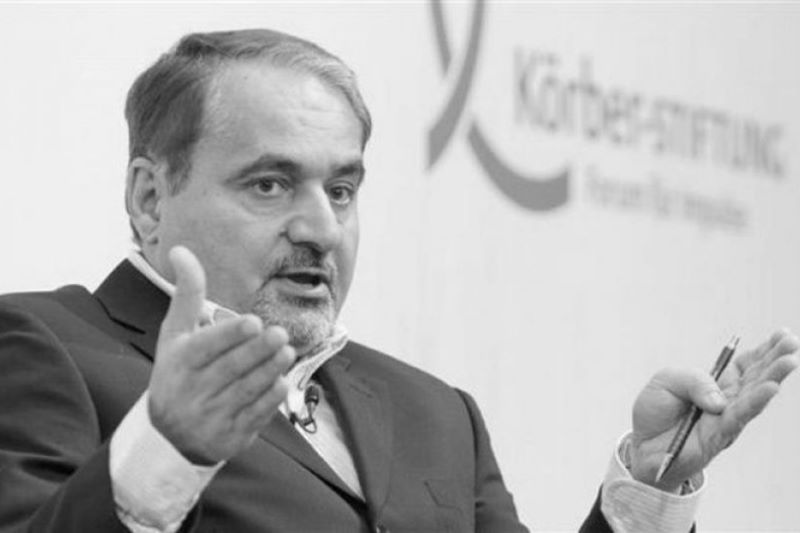
ترجمهی مقالهی سیدحسین موسویان، دیپلمات سابق ایران و تحلیلگر مسائل بینالملل که در وبسایت میدل ایست آی منتشر شده را میتوانید در ادامه بخوانید:
یکشنبه ۱۹ ماه می هلیکوپتر حامل رئیس جمهور، آقای رئیسی، و وزیر خارجه ایران، آقای امیرعبداللهیان، و همراهان در راه بازگشت از مراسم افتتاح یک سد مشترک با کشور جمهوری آذربایجان دچار حادثه شد.
دشواریهای زیاد پروسه جستجو بهخاطر وخامت شدید هوا موجب شد که کشورهای دیگر برای عملیات جستجو به کمک آمدند. دوشنبه ۲۰ می، مقامات ایران اعلام کردند که رئیس جمهور، وزیر خارجه و همراهان جان باختهاند. آقای رئیسی در شهرمشهد متولد و در سن ۲۰ سالگی در قوه قضائیه بهعنوان دادستان کرج کارش را آغاز کرد و به تدریج به ریاست قوه قضائیه رسید و در جوئن ۲۰۱۲ رئیس جمهور ایران شد.
درگذشت رئیس جمهور ایران در شرایط حساس منطقه خاورمیانه رخ داد و بهجز اسرائیل، سران کشورهای جهان درگذشت رئیس جمهور، وزیر خارجه و همراهان را تسلیت گفتند. رئیس جمهور در ایران دومین مقام عالی کشور بعد از مقام رهبری است. آقای مخبر معاون اول رئیس جمهور موقتا مسئولیت اداره دولت و علی باقری مذاکره کننده ارشد هسته ای ایران نیز موقتا عهدهدار سرپرستی وزارت خارجه شدهاند.
طبق قانون اساسی ایران انتخابات برای تعیین رئیس جمهور جدید ظرف ۵۰ روز باید انجام شود. در عین حال میراث دوره ریاست جمهوری آقای رئیسی سیاست داخلی و خارجی ایران تاثیرگذار خواهد بود.
برجام
با وجودی که بخش اعظم اصولگرایان در دوره ریاست جمهوری روحانی مخالف برجام بودند، رئیسی اصولگرا با تمام ظرفیت برای احیاء برجام تلاش کرد اما این تلاشها بهخاطر عدم تمایل دولت بایدن به نتیجه نرسید. دولت بایدن و کشورهای اروپایی بهخاطر همکاریهای ایران با روسیه بویژه موضوع جنگ اوکراین و نیز حمایت ایران از حماس در جنگ با اسرائیل، علاقه ای به احیاء برجام نداشتند.
دولت بایدن نه تنها ۱۵۰۰ تحریم دوره ترامپ را حفظ کرد بلکه حدود ۷۰۰ تحریم جدید نیز علیه ایران اعمال کرد. کشورهای اروپایی نیز دهها تحریم جدید علیه ایران اعمال کردند. این تحریمها موجب شد که ارزش پول ملی ایران از یک دلار حدود ۲۵۰۰۰ تومان در پایان دوره روحانی، به یک دلار حدود ۶۰۰۰۰ تومان در فروردین ۲۰۲۴ سقوط کند.
ایران نیز عکس العمل نشان داد، از برجام فاصله گرفت و برنامه هستهای خود را توسعه داد تا اینکه به یک کشور “در آستانه بمب هستهای” تبدیل شد که این مهمترین میراث دوره ریاست جمهوری رئیسی را رقم زد. اکنون سئوال این است که آیا ایران بعد از رئیسی به یک کشور “دارنده بمب هستهای” تبدیل خواهد شد.
واقعیت این است که آمریکا و اروپا هیچ ابتکاری در دیپلماسی برای یک گفتگوی جامع با ایران ندارند بجز توسل به تحریم وفشار و تهدید و زورگویی. با ادامه این روند توسط غرب، منهای اینکه رئیس جمهور بعدی تیران چه کسی باشد، احتمالا ایران به سوی بک کشور “دارنده بمب هسته ای” خواهد رفت.
تنشهای ایران-اسرائیل
در دوره ریاست جمهوری رئیسی تنشهای منطقه ای آمریکا و اسرائیل با ایران، به بالاترین سطخ خود بعد از انقلاب ۱۹۷۹ ایران رسید. در اول آوریل ۲۰۲۴، اسرائیل در حمله نظامی به سرکنسولگری ایران، تعدادی از فرماندهان ارشد نظامی ایران را به شهادت رساند و ایران نیز در یک اقدام متقابل با حدود ۳۰۰ پهباد و موشک به اسرائیل حمله کرد. ادامه این روند تخاصمات غرب-اسرائیل و ایران، ممکن است دیر یا زود، به یک تقابل نظامی تمام عیار بین ایران و اسرائیل بیانجامد.
سومین تحول مهم منطقهای در دوران یاست جمهوری رئیسی، برقراری روابط دیپلماتیک ایران و عربستان با وساطت چین بود. در ژانویه ۲۰۱۶، نیروهای طرفدار اصولگرایان در اعتراض به اعدام شیخ نمر رهبر شیعیان همراه با ۴۷ تن از شیعیان عربستان، سفارت عربستان در ایران را به آتش کشیدند که این حادثه موجب بروز بحران دیپلماتیک بین دوکشور شد.
علت اصلی موفیت چین در بهبود روابط تهران-ریاض این بود که محمد بن سلمان با اتخاذ یک استراتژی جدید، تصمیم گرفت در قالب برنامه چشم انداز ۲۰۳۰، عربستان را به قدرت اقتصادی منطقه تبدیل کند. بدین منظور ریاض روابط خود را نه تنها با ایران و قطر و ترکیه و مصر بلکه با قدرتهای بلوک شرق نیز بهبود بخشید.
تحول مهم بعدی منطقه ای-بین المللی در دروان ریاست جمهوری رئیسی، نهایی شدن عضویت دائمی ایران در سازمان شانگهای و پذیرش ایران به عضویت در گروه کشورهای بریکس شامل روسیه، چین، هند، آفریقای جنوبی و برزیل بود که پروسه آن از سالها قبل آغاز شده بود.
اگر روند جاری خصومتهای غرب با ایران ادامه یابد، عضویت ایران در این دو سازمان مهم میتواند پروسه چرخش کامل ایران به شرق را رقم زند.
حاکمیت یکدست
اما در بخش سیاست داخلی ایران، آقای رئیسی رئیس جمهوری بود که به طور کامل با سیاستهای مورد نظر مقام عالی رهبری ایران در موضوعات داخلی، منطقهای و بینالمللی هماهنگ بود. روسای جمهور قبلی از جناح اعتدالیون و اصلاح طلبها همچون هاشمی، خاتمی و روحانی دیدگاههای متفاوتی با مقام عالی رهبری ایران داشتند. حتی احمدی نژاد که منتخب اصولگرایان بود، بعد از مدتی اختلافات شدید با سیاستهای مقام رهبری پیدا کرد.
در حقیقت دوره رئیسی، دوره یک رئیس جمهور بود که در آن حاکمیت یکدست شد و اصولگرایان دولت، مجلس، قوه قضائیه و نهادهای دیگر را دراختیار گرفتند.
با این وجود، جبهه اصولگرایان در این دوره نیز دچار شکاف شد بطوریکه نیروهای معتدل این جبهه مثل علی لاریجانی رئیس مجلس قیلی منزوی شدند، نیروهای نیمه معتدل جناح اصولگرا همچون محمدباقر قالیباف رئیس فعلی مجلس توسط جناح رادیکال اصولگرایان مورد انتقاد و تحت فشار قرار گرفتند.
درعین حال رئیسی سعی کرد که خود را در وسط رقابتهای داخلی جبهه اصولگرایان حفظ کند. در عین حال، در اواخر دوره رئیسی، تئوری “حاکمیت یکدست” هم زیر سئوال رفت.
نهایت اینکه بعد از رئیسی، دو فرضیه متصور است. یکی اینکه جناح رادیکال جبهه اصولگرایان قدرت را قبضه کند که در این صورت ممکن است تنشهای ایران با غرب تشدید شود.
فرضیه دوم اینکه با تدبیر مقام عالی رهبری ایران، نیروهای معتدل جبهه اصولگرایان، غالب شوند که در اینصورت شانس کاهش تشنجات غرب و ایران افزایش خواهد یافت.
Ebrahim Raisi: The president’s death leaves Iran at a crossroads
https://www.middleeasteye.net/opinion/iran-ebrahim-raisi-president-death-crossroads
Seyed Hossein Mousavian
۲۱ May 2024 08:24 BST | Last update: 2 hours 51 mins ago
Iran could seek another unifying president like Raisi and return to the diplomatic fold. But if the conservatives tighten their grip on power, then all-out war with Israel is possible
Men hang a huge portrait of Iran’s late president Ebrahim Raisi outside the Iranian embassy in Baghdad on 20 May, 2024 (AFP)
On Sunday 19 May, a helicopter carrying Iranian President Ebrahim Raisi, Foreign Minister Hossein Amir-Abdollahian, and other officials, crashed in the mountains on Iran’s border with Azerbaijan.
Raisi was on his way back from the opening ceremony of a joint major dam with Azerbaijan. The terrible weather made the search efforts extremely difficult. As a result, nations around the world offered their assistance in emergency efforts to locate the downed helicopter and Turkey, Russia and Iraq sent rescue teams.
On Monday, Iranian officials confirmed that the 63-year-old president, foreign minister and others had been found dead at the crash site.
Raisi was born in the northeast Iranian city of Mashhad. Aged 20, he was appointed prosecutor in the city of Karaj, and gradually rose to be head of Iran’s judiciary. He was elected president in June 2021.
The president’s death came at a fraught moment in the Middle East. Except for Israel, world leaders offered their condolences.
Raisi, as Iran’s president, was the country’s second-most powerful person, after Supreme Leader Ayatollah Ali Khamenei.
Iran’s First Vice President Mohammad Mokhber is now acting president, and top negotiator Ali Bagheri Kani has been appointed acting foreign minister.
Based on the Iranian constitution, a new president will be elected within 50 days. However, Raisi’s legacy will have an impact on Iranian domestic and foreign relations going forward.
Iran nuclear deal
Although most principalists (conservatives) vehemently opposed the Iran nuclear deal, known as the Joint Comprehensive Plan of Action (JCPOA), Raisi’s government made every effort to revive it, albeit unsuccessfully, with the Biden administration showing little appetite to move forward with it.
The Biden White House and the European Union were not inclined to revive the JCPOA due to Iran’s cooperation with Russia, especially in the Ukraine war, and then Iran’s support for Hamas in the war against Israel.
Biden not only retained around 1,500 sanctions imposed against Iran during the Donald Trump era, he also added approximately 700 new sanctions.
European governments also imposed dozens of new sanctions against Iran. Due to them, in early 2024, ordinary Iranians were facing high inflation and an even more weakened currency. The free market exchange rate surged from 250,000 rials to the dollar at the end of Hassan Rouhani’s presidency in 2021, to over 600,000 rials in March 2024.
As a result, the most significant reaction was that Iran distanced itself from the JCPOA, expanded its nuclear programme and became a nuclear threshold state. That is the most significant legacy of Raisi’s era. It remains to be seen if Iran will become a nuclear state following Raisi’s death.
The US and Europe currently lack any diplomatic initiative or willingness to engage in any serious and broad dialogue with Iran, focusing instead on increasing sanctions, threats and bullying.
If this trend continues, then regardless of who the next president of Iran might be, Tehran will likely press ahead with acquiring nuclear capabilities.
Iran-Israel tensions
During Raisi’s presidency, tensions between Iran and the US-Israel reached their highest levels since the revolution in 1979. On 1 April 2024, an Israeli air strike on an Iranian consular building in Syria’s capital Damascus killed multiple senior Iranian military officers.
In response, on 13 April, Iran carried out its first-ever direct attack on Israeli territory by deploying over 300 unmanned aerial vehicles and missiles. A continuation of the current trend between Iran and the West and Israel could well lead to an all-out war between Iran and Israel.
Emergency personnel search the rubble at the site of strikes which hit a building annexed to the Iranian embassy in Syria’s capital Damascus, 1 April 2024 (Louai Beshari/AFP)
The third major development during Raisi’s presidency was the rapprochement between Iran and Saudi Arabia.
Under Rouhani, in January 2016, pro-principalist forces, angered by Saudi Arabia’s executions of a prominent Shia cleric who rallied for political reform and 47 prisoners, broke into the Saudi embassy, leading to a diplomatic crisis between Riyadh and Tehran.
In March 2023, China brokered the Iran-Saudi rapprochement.
However, the main reason for this development was that Saudi Crown Prince Mohammed bin Salman had adopted a new strategy to transform Saudi Arabia into the leading economic power in the Middle East within the framework of Plan Vision 2030.
To achieve this goal, he acted to normalise relations with regional countries, including Iran, Qatar, Egypt, and Turkey, and even with Israel, while also expanding relations with the powers of the Eastern bloc.
This development laid a foundation for better Arab-Iran relations during the next Iranian administration.
The next major regional-international development was Iran’s permanent membership of the Shanghai Cooperation Organisation (SCO) and Iran’s application to join the Brics group of Brazil, Russia, India, China and South Africa that Beijing and Moscow cast as a powerful emerging market alternative to the West.
If the hostilities between the West and Iran continue, Iran’s membership of these two important organisations would provide a basis for completing the process of Iran’s pivot to the east.
Unified governance
Finally, at home, Raisi was the first president of Iran during the 35-year leadership of Ayatollah Khamenei to be fully aligned with the leadership’s policies domestically, regionally and internationally.
The previous presidents from the reformist or moderate camps, such as Akbar Rafsanjani, Mohammad Khatami and Rouhani, had different views on both foreign and domestic policy from the leadership.
Even Mahmoud Ahmadinejad, elected from the principalist front, eventually had extensive disagreements with the leadership.
Raisi was the first president of Iran during the 35-year leadership of Ayatollah Khamenei to be fully aligned with the leadership’s policies domestically, regionally and internationally
In fact, Raisi’s era marked the first period in which governance in Iran had become unified, with the principalists holding power across the government, parliament, judiciary, security and military institutions.
Under Raisi, however, the principalist front experienced a division. Moderate figures of the camp such as Ali Larijani, former speaker of parliament, were sidelined, while semi-moderate figures such as Mohammad Bagher Ghalibaf, the current speaker of parliament, faced severe criticism from the more radical faction.
Raisi sought to position himself in the middle of this rivalry. Therefore, the idea of “unity of governance” came into question.
Consequently, after Raisi, two hypotheses regarding Iran’s domestic policy are foreseeable.
One suggests that the radical principalists will tighten their grip and fully control the government, which may lead to escalated tensions between Iran and the West.
The second hypothesis is that, with the guidance of the leadership, moderate forces within the principalist camp will enter the scene, which would increase the chances of easing tensions between Iran and the West.
The views expressed in this article belong to the author and do not necessarily reflect the editorial policy of Middle East Eye.
انتهای پیام
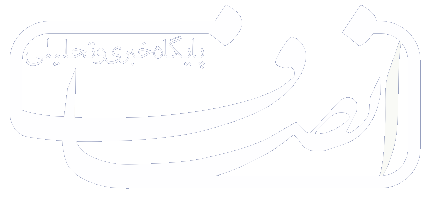



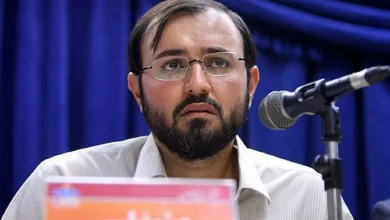
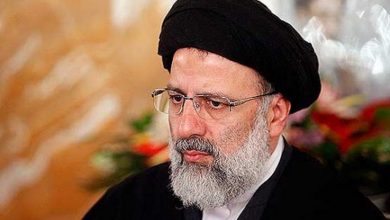
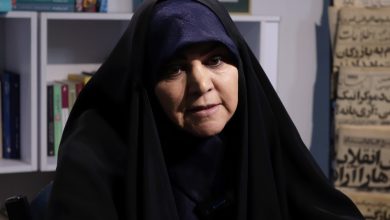
لازم است از افرادی که مدتی در جوامع غربی زندگی کرده و مدتی در جوامع سنتی زیست کرده اند سوال کرد که کداممحیط و زندگی را ترجیح می دهند
تروریست
تجربه دولت روحانی نشان داد که غربی ها عملا هیچ علاقه ای به تعامل با ایران ندارند بنابراین حضور دیپلمات های غربگرا هیچ فایده ای در نظام ندارد و تاثیری جز فرصت سوزی، سر کار گذاشتن، معطل گذاشتن و وعده و وعید ندارد.